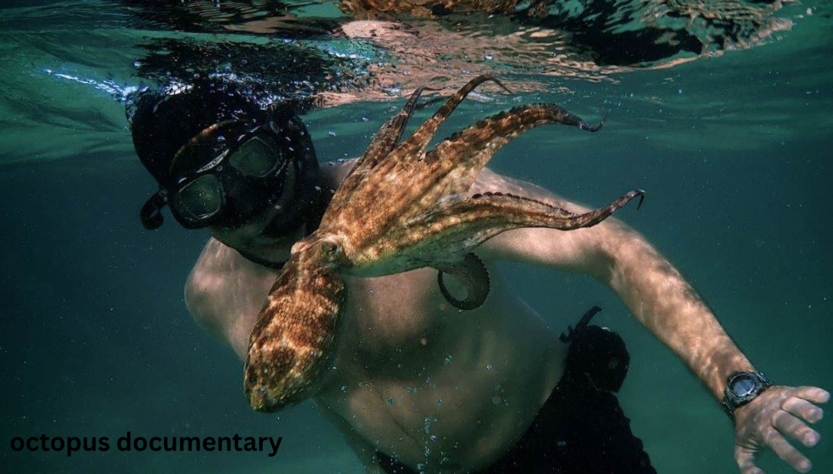In recent years, the popularity of nature documentaries has surged, captivating audiences with stunning visuals and insightful narratives. Among the many intriguing subjects, the octopus has emerged as a star, showcasing its remarkable intelligence and unique behaviors. This article delves into the world of the octopus documentary, exploring its significance, the science behind these incredible creatures, and some notable documentaries that have brought them to the forefront of marine exploration.
Understanding the Octopus
The octopus is a highly intelligent marine animal belonging to the class Cephalopoda, which also includes squids and cuttlefish. Known for their eight arms lined with sensitive suckers, octopuses are masters of camouflage and problem-solving. They inhabit various ocean environments, from coral reefs to deep-sea habitats, showcasing a range of adaptations that make them fascinating subjects for documentaries.
Key Features of Octopuses
- Intelligence: Octopuses are renowned for their cognitive abilities. They can solve puzzles, use tools, and exhibit complex behaviors that suggest a high level of intelligence.
- Camouflage: With specialized skin cells called chromatophores, octopuses can change their color and texture to blend into their surroundings, making them experts at evading predators.
- Regeneration: One of the most remarkable traits of octopuses is their ability to regenerate lost limbs. This adaptation not only aids in survival but also fascinates researchers and viewers alike.
- Unique Locomotion: Unlike many marine animals, octopuses can move in various ways, including crawling on the ocean floor and jet propulsion for quick escapes.
- Short Lifespan: Most octopus species have relatively short lifespans, typically ranging from one to three years. This brevity adds an element of urgency to their life cycles, making their behaviors even more intriguing.
The Impact of Octopus Documentaries
The rise of the octopus documentary genre has significantly impacted public perception and understanding of these creatures. By showcasing their behaviors, habitats, and interactions with the environment, these films educate viewers about the importance of marine ecosystems and the need for conservation.
Educational Value
One of the primary benefits of octopus documentaries is their educational value. They provide insights into the biology and behavior of octopuses, helping viewers appreciate the complexity of marine life. Through stunning cinematography and expert narration, these documentaries can spark interest in marine biology and conservation efforts.
Raising Awareness
Many octopus documentaries also highlight the threats faced by these creatures due to climate change, pollution, and overfishing. By raising awareness about these issues, filmmakers aim to inspire viewers to take action and support conservation initiatives.
Notable Octopus Documentaries
Several documentaries have gained acclaim for their captivating portrayal of octopuses. Here are five notable examples that stand out in the genre:
1. My Octopus Teacher (2020)
This award-winning documentary follows filmmaker Craig Foster as he forms a unique bond with an octopus living in a South African kelp forest. The film beautifully showcases the octopus’s daily life, its intelligence, and the deep connection Foster develops with it. “My Octopus Teacher” not only highlights the wonders of the underwater world but also emphasizes the importance of nature in our lives.
2. The Octopus in My House (2018)
In this intimate documentary, filmmaker and marine biologist Dr. Rachael Miller invites viewers into her home as she studies the behavior of a pet octopus. The film explores the challenges and rewards of keeping an octopus as a companion, shedding light on their intelligence and emotional depth.
3. Octopus: Making Contact (2018)
This documentary focuses on the groundbreaking research of Dr. David Scheel, who studies the behavior of octopuses in their natural habitat. Through close encounters and innovative filming techniques, the film reveals the complexities of octopus communication and social behavior, offering a deeper understanding of these enigmatic creatures.
4. The Ocean’s Greatest Secret (2019)
This documentary takes viewers on a journey through the underwater world, focusing on the hidden lives of octopuses. With stunning visuals and expert commentary, it showcases the unique adaptations of octopuses and their role in marine ecosystems.
5. Octopus: The Science of Intelligence (2021)
This documentary dives into the cognitive abilities of octopuses, exploring their problem-solving skills and adaptability. Featuring interviews with leading scientists, it provides a comprehensive look at the intelligence of these remarkable creatures and the implications for our understanding of animal cognition.
The Future of Octopus Documentaries
As interest in marine life continues to grow, the octopus documentary genre is likely to expand further. The combination of stunning visuals, engaging narratives, and educational content makes these documentaries appealing to a wide audience. Filmmakers are increasingly using advanced technology, such as underwater drones and high-definition cameras, to capture the elusive behaviors of octopuses in their natural habitats.
Conclusion
In conclusion, the octopus documentary genre plays a vital role in educating the public about these fascinating creatures and their importance in marine ecosystems. Through compelling storytelling and breathtaking visuals, these films not only entertain but also inspire viewers to appreciate and protect our oceans. As we continue to explore the depths of the sea, the octopus will undoubtedly remain a captivating subject for future documentaries, revealing the mysteries of the underwater world and the intelligence of its inhabitants. Whether you’re a marine enthusiast or a casual viewer, there’s no denying the allure of the octopus and the stories waiting to be told.
